Researchers

Bernard Perron est un professeur titulaire au département d’histoire de l’art et d’études cinématographiques. Son approche a toujours été “ascendante”. Que ce soit un film, un jeu vidéo, une bande dessinée ou un roman, c’est d’abord l’œuvre qui nourrit sa réflexion. Formaliste et cognitiviste beaucoup plus qu’herméneute, plus intéressé par la réception que par la production, il s’efforce de comprendre comment l’œuvre est comprise et comment l’émotion est ressentie. Cela explique son intérêt marqué pour un genre populaire comme l’horreur qui exacerbe la plus vieille et la plus forte émotion ressentie par l’homme, à savoir la peur (dixit Lovecraft). Si le jeu vidéo a pris beaucoup de place dans ses recherches, c’est bien parce qu’il reste une machine à faire penser, à faire agir et à faire éprouver. Il a co-dirigé The Video Game Theory Reader (Routledge, 2003), The Video Game Theory Reader 2 (Routledge, 2009), et The Routledge Companion to Video Game Studies (Routledge, 2014, 2e édition en 2023), Fifty Key Video Games (Routledge, 2022), ainsi que Figures de violence (l’Harmattan, 2012), The Archives: Post-Cinema and Video Game Between Memory and the Image of the Present (Mimesis, 2014), Z pour Zombies (Presses de l’Université de Montréal, 2015) et Video Games and the Mind. Essays on Cognition, Affect and Emotion (McFarland, 2016). Il a également dirigé Horror Video Games: Essays on the Fusion of Fear and Play (McFarland, 2009). Il a écrit Silent Hill: The Terror Engine (The University of Michigan Press, 2012), The World of Scary Video Games: A Study in Videoludic Horror (Bloomsbury, 2018) et Le jeu vidéo: la peur au service de la jouabilité (Presses universitaires Blaise-Pascale, 2021). Il est co-fondateur et co-directeur de rédaction de la revue en ligne Sciences du jeu.
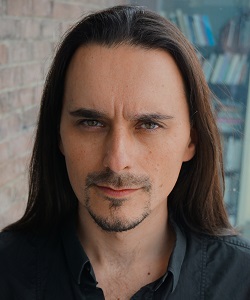
Dominic Arsenault is a professor in the Department of Art History, Film and Audiovisual Media at the Université de Montréal. His research on video games focuses on narrative and script; graphics and music; history and industry. He also practices music creation with his project Multi-Memory Controller, which hybridizes the sounds of metal music and retro video games, and video game creation under the name Arsenic Domino.
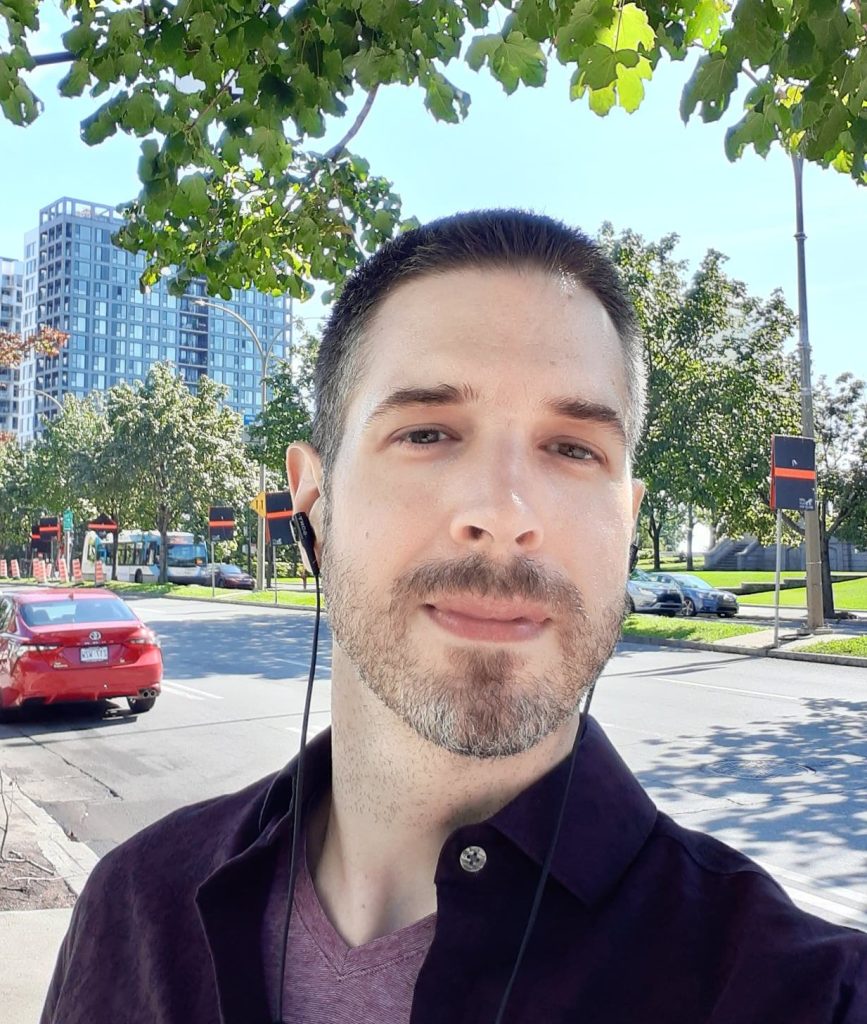
Carl Therrien is a Professor of Games and Film Studies at Université de Montréal. His research explores immersion and affective ecologies, topics central to his Ph.D. dissertation and further examined in States of Immersion Across Media (co-edited with Philippe Bédard and Alanna Thain, Amsterdam University Press, 2025). He has published extensively on the current challenges of video game historiography through the study of specific genres such as visual novels, horror games and first-person shooters. In The Media Snatcher (MIT Press, 2019), Therrien conducts a comparative study of the TurboGrafx-16 / PC Engine, confronting American and Japanese perspectives of this expansive technological platform. He has co-founded the History of Games international conference series and has contributed to the annual Game history symposium in Montreal since 2014.
Auxiliaires de recherche
Cédrick Bergeron-Hamel
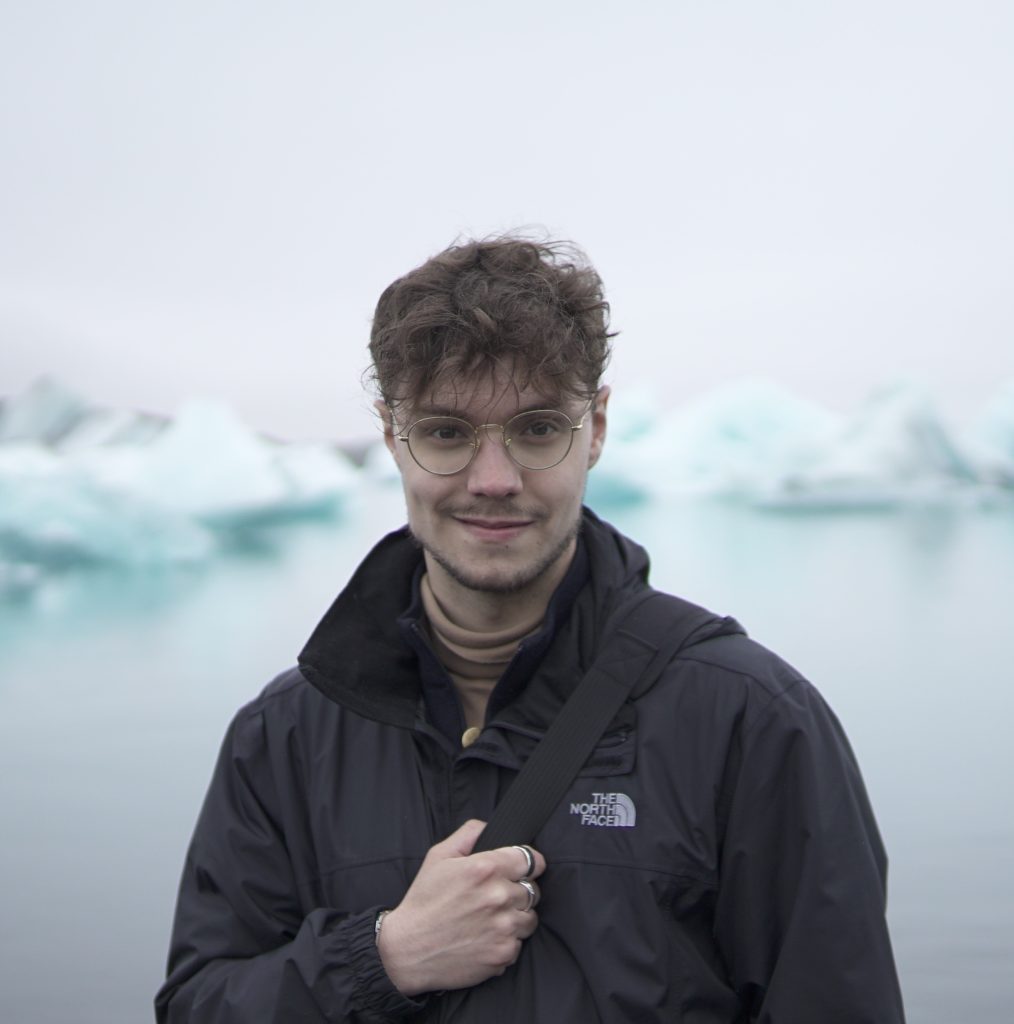
Cédrik Bergeron-Hamel is a MA student in cinema in the Department of Art History and Cinema at the Université de Montréal. Working under the supervision of Bernard Perron, his international experience has fueled his research into the impact of videogame temporalities on gamers’ conceptualization of game time, by analyzing the discursive metaphors used to render this experience in reviews. His academic interests intersect with his creative projects, where he explores the creation of reflexive videogame experiences, combining narrativity and temporality.
Roxanne Chartrand 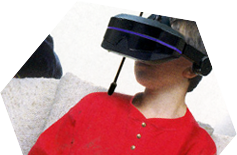 Histoire internationale du jeu vidéo (SHAC)
Histoire internationale du jeu vidéo (SHAC)

Roxanne Chartrand is a PhD candidate and lecturer in the Department of Art History and Film Studies at the Université de Montréal. Her doctoral research, carried out under the supervision of Dominic Arsenault and Maude Bonenfant (UQAM), focuses on the theory of possible worlds, agentivity and, more broadly, the metaphysical and meta-ethical implications of the videogame experience. Her other research interests include alternative and queer video games and science fiction. In addition to participating in the Sensibilités Queer laboratory at the Université de Montréal as a research assistant, she is also founder and coordinator of the Collectif XP, the videogame research and experimentation group for graduate students in video game studies at the Université de Montréal.
Dany Guay-Bélanger [Deadplay] Histoire internationale du jeu vidéo (SHAC)
Histoire internationale du jeu vidéo (SHAC)
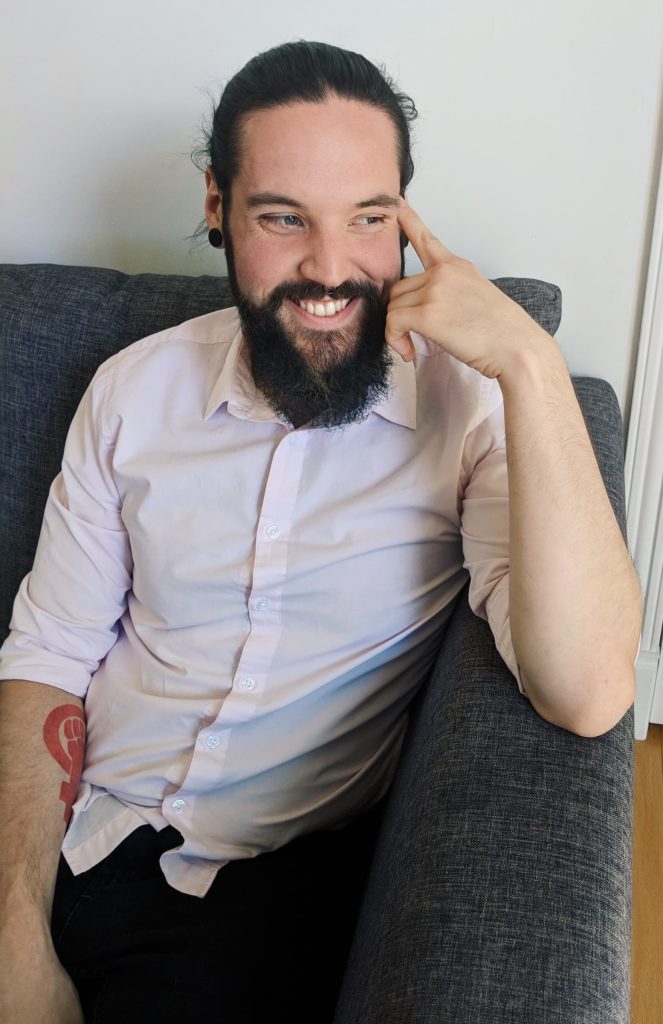
Dany Guay-Bélanger is a FRQ and SSHRC-funded PhD candidate in the Department of Art History, Film and Audiovisual Media at the Université de Montréal and holds a master’s degree in Public History from Carleton University. He created a podcast that explores the development and application of Deadplay, a methodology favouring a holistic approach for the preservation and study of videogames as cultural heritage artefacts. His research aims to perfect and concretise the methodology developed during his master’s in order to allow players and researchers, present and future, to access videogames from every eras of this medium’s history. Dany is the Francophone representative of the Canadian Game Studies Association, a member of the History of Games conference steering committee, and an affiliate of the Centre for Oral History and Digital Storytelling.
Kevser Güngör Histoire internationale du jeu vidéo (SHAC)
Histoire internationale du jeu vidéo (SHAC)
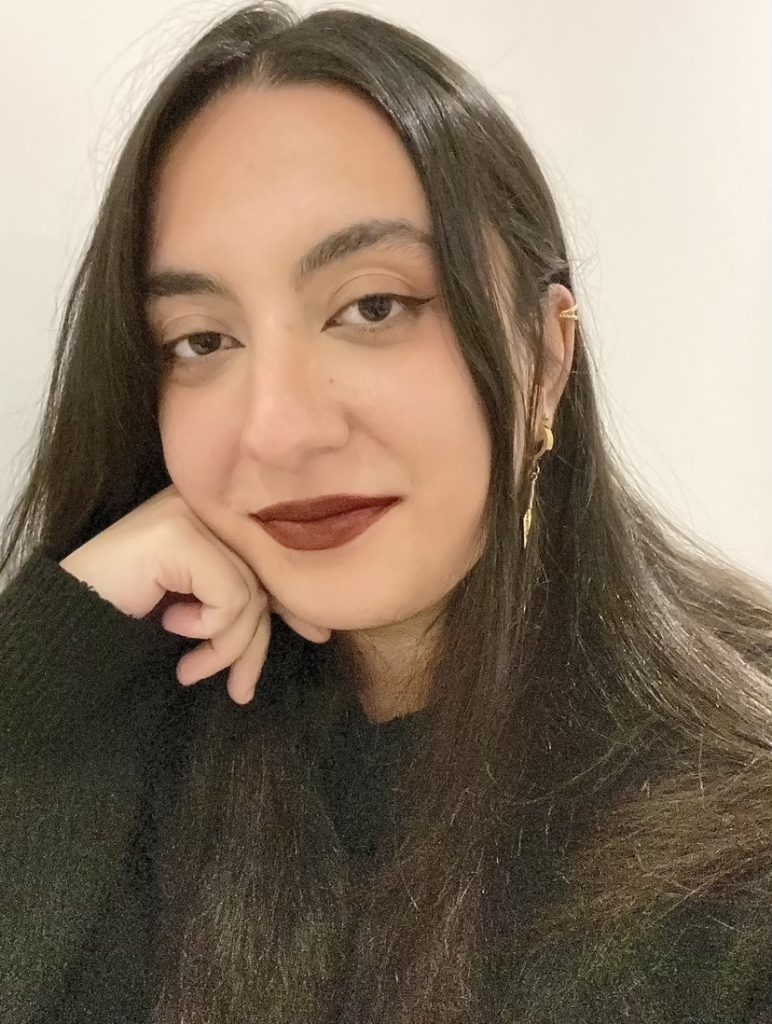
Kevser Güngör is a PhD candidate and lecturer in the Department of Art History, Cinema and Audiovisual Media at the Université de Montréal. Her PhD research, carried out under the joint supervision of Dominic Arsenault (UdeM) and Arnaud Regnauld (Université Paris 8), focuses on the android in science fiction, primarily in video games, but also in literature, cinema and TV series. She specifically studies the place occupied by the “radical” android in contemporary fictions, its ontological and reflexive role, from an intermedial and philosophical point of view, through trans-, post- and metahumanism, moral philosophy and ethics, the question of avatarity, embodiment, agentivity, and so on. Her other research interests include queer, orientalism and the (de)colonial representation of characters inspired by South-West Asia and North Africa (i.e. the “Middle East”) in independent video games (Laboratoire Sensibilités Queer) and fantasy/science-fiction role-playing games (GORR).
Jessica Harvey

Jessica Harvey holds a bachelor’s degree in cinema from UDEM and is currently pursuing a master’s degree in cinema, research-creation profile, under the supervision of Dominic Arsenault (UDEM). She is also a teaching and technical assistant in the Department of Art History, Film and Audiovisual Media at the Université de Montréal. Her main areas of research focus on scriptwriting, as well as the representation of otherness and diversity in various media (video games, cinema, TV series), particularly in the context of works created by authors in a position of privilege. She is also interested in video shooting and sound recording, both for short films and interviews.
Samuel Heine Critique vidéoludique
Critique vidéoludique
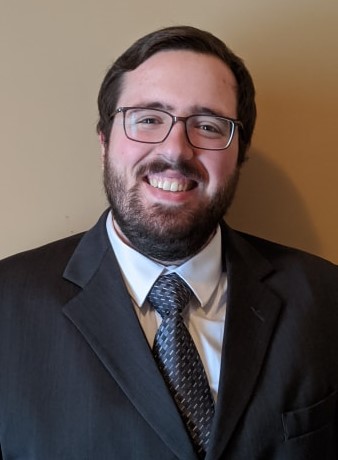
Samuel Heine est candidat au doctorat en études cinématographiques à l’Université de Montréal. Il a précédemment complété une maîtrise en histoire à l’Université de Sherbrooke au cours duquel il a travaillé sur la représentation du quartier chinois de Montréal dans la presse. En utilisant une approche interdisciplinaire, il poursuit désormais ses recherches sur les représentations médiatiques des populations minorisées en étudiant les jeux vidéo et les revues vidéoludiques. Ses projets portent notamment sur la question des espaces ethnicisés, la diversité dans les revues vidéoludiques et la question de la race dans les univers fantastiques.
Francis Lavigne  Critique vidéoludique
Critique vidéoludique  Genres vidéoludiques et communautés discursives
Genres vidéoludiques et communautés discursives
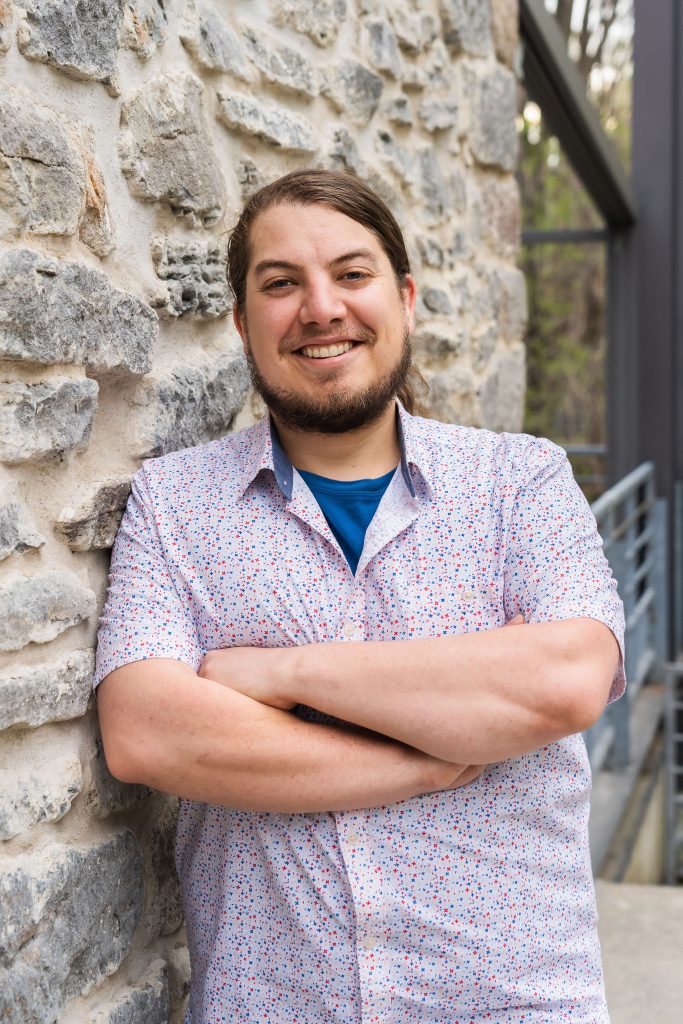
Francis Lavigne is a PhD candidate in film studies in the Department of Film Studies at the Université de Montréal. He is also coordinator of the video game laboratory. As part of his master’s degree, he focused on the history of video game recordings (on YouTube in particular). As part of his PhD project, he is interested in the history and forms of video game criticism in North America, through a study of the Castlevania game series.
Samuel Poirier-Poulin [Site] Histoire internationale du jeu vidéo (SHAC)
Histoire internationale du jeu vidéo (SHAC)
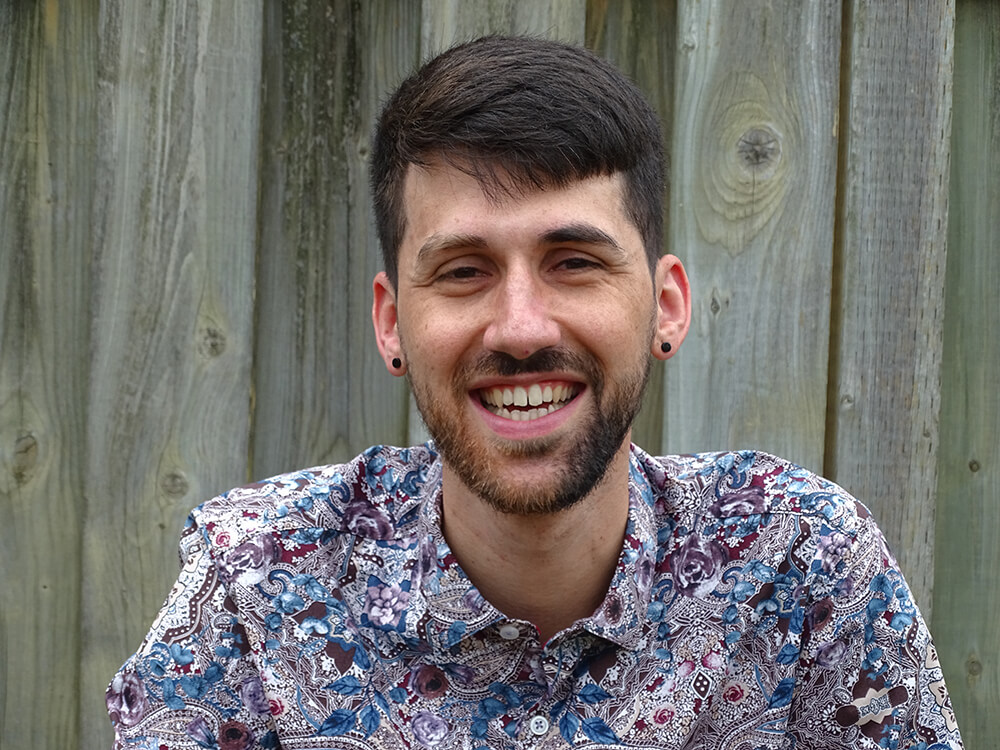
Samuel Poirier-Poulin is a PhD candidate and course instructor in game studies at the Université de Montréal. His doctoral research investigates trauma-like gaming experiences and draws on affect theory and phenomenology of media. His second field of research explores the recent developments in sexuality studies and focuses on romance and queer desires in visual novels. His work has been published in several academic journals, including Journal of Games Criticism, G/A/M/E: The Italian Journal of Game Studies , and Synoptique: An Online Journal of Film and Moving Image Studies, and in the anthology Video Games and Comedy. Since 2022, Samuel is the Editor-in-Chief of the journal Press Start.
Michelle Raby

Michelle Raby is a master’s student in video games at the Université de Montréal. Under the supervision of Bernard Perron, she is mainly interested in ludonarratology and the role of the tactician in the Fire Emblem series. Her other interests include gamer emotions and the study of video game series. Having previously studied digital music (UdeM) and worked in sound design (Super Splendide), she has also explored the mechanical and aesthetic functions of audio in video games and virtual reality.
Christopher Ravenelle Critique vidéoludique
Critique vidéoludique
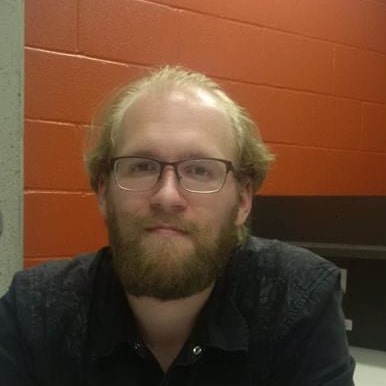
Sous la supervision de Bernard Perron et de Natalie Doonan (département de communication), Christopher est étudiant au doctorat en cinéma au département d’histoire de l’art et d’études cinématographiques, Université de Montréal. Après s’être intéressé dans le cadre de son mémoire à la simulation comme matière expressive dans les jeux de survie, son sujet de thèse porte présentement sur les sources de motivations et le processus d’engagement des joueurs en monde ouvert. Ses autres intérêts de recherches englobent l’étude des communautés de fan, l’observation des productions amateurs et les liens à faire avec l’évolution de l’industrie, ainsi que l’application des méthodes qualitatives et quantitatives dans les recherches en études du jeu vidéo.
Salima Toumi

Salima Toumi is a PhD candidate in Video Game Studies in the Department of Art History, Cinema and Audiovisual Media. She previously obtained a master’s degree in Social and Cultural Anthropology, under the supervision of Lilia Othmen Challougui, during which she explored video games as rites of passage and their role in identity and intersubjective construction. She is now pursuing her research under the supervision of Carl Therrien. Her thesis focuses on the reconfiguration of identity and the relationship to otherness in a posthuman context, using the video game NieR: Automata and the animated series Pluto as case studies.her work lies at the intersection of human and social sciences, cognitive sciences and philosophy. A proponent of a holistic, transdisciplinary approach, her research emphasizes the interconnection of knowledge and the need to rethink modes of thought in order to better understand contemporary reality.
Visiteur.e.s de recherche
Jessica Aldred
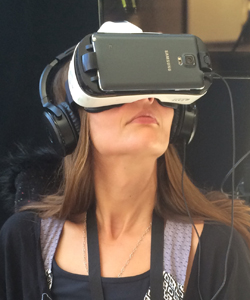
Jessica Aldred a été une chercheure postdoctorale à l’Université de Montréal (2013-2015), où elle a travaillé sur les notions de franchise transmédiatique, de personnage, et de convergence entre le cinéma et le jeu numérique. Elle a examiné à travers ce projet les défis de traduire les personnages issus du monde filmique dans le domaine du jeu vidéo. Jessica donne des cours sur le cinéma numérique, la franchise transmédiatique, et la question du genre dans le jeu; elle a récemment fondé une compagnie de production (Rule of Three Productions) qui explore les intersections entre le documentaire, le cinéma narratif et le jeu numérique. Ses travaux ont été publiés dans An Interdisciplinary Journal, Games and Culture, et The Oxford Handbook for Sound and Image in Digital Media.
Christophe Duret
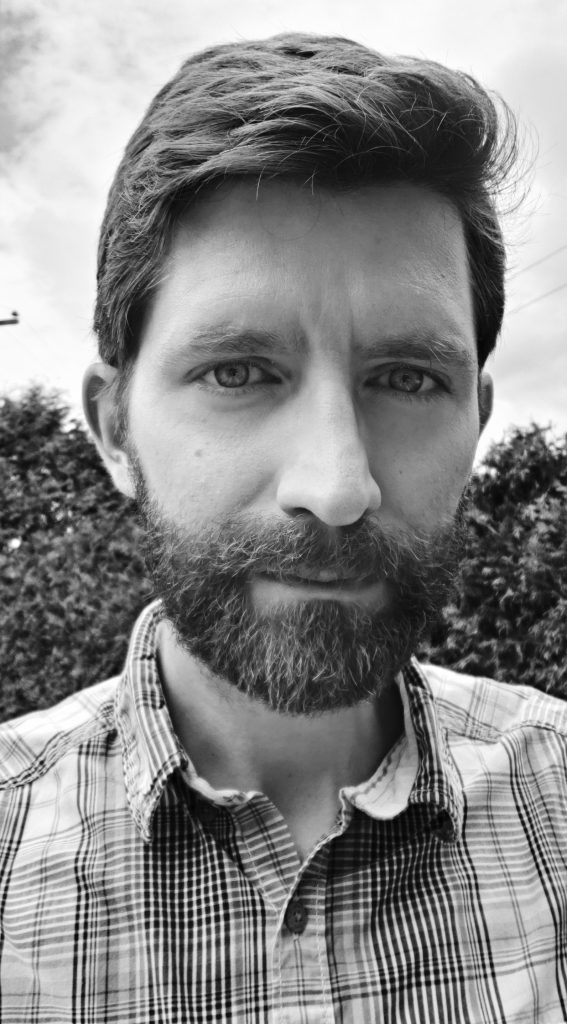
Christophe Duret est chercheur postdoctoral à l’Université de Montréal (Laboratoire LUDOV) et à l’Université de Limoges (Espaces Humains et Interactions Culturelles). Il détient une Maîtrise en communication et un Doctorat en études françaises de l’Université de Sherbrooke, où il est chargé de cours en communication depuis l’automne 2016. Il gère la liste de diffusion Paidia, consacrée aux études vidéoludiques francophones, depuis 2015. Il a également codirigé un ouvrage portant sur l’intertextualité dans les jeux vidéo (Contemporary Research on Intertextuality in Video Games). Il a enfin publié plusieurs articles dans des revues telles que Sciences du Jeu, Recherches en communication, Communication & organisation, Itinéraires: Littérature, Textes, Cultures et Loading. Ses champs d’intérêt en recherche portent sur la mésocritique dans son application à l’analyse d’objets vidéoludiques, l’intermédialité, la transmédialité et les rhétoriques procédurale et spatiale.
Thibault Philippette

Thibault Philippette is a professor at the School of Communication at UCLouvain in Belgium. He is a researcher with the Groupe de Recherche en Médiation des Savoirs (GReMS) and co-founder of the Louvain GameLab. Following a thesis on the coordination activities of players of massively multiplayer online role-playing games (MMORPGs), his research has focused on the relationship between (video) games and learning (education in and through games), ludoliteracies (evaluation), media ludology (discourse) and ludification (design). More generally, he is interested in the processes of social appropriation of technologies. He recently co-edited, with Sébastien Genvo, the collective work Introduction aux Théories des Jeux vidéo.
François-Xavier Surinx

François-Xavier Surinx is a PhD candidate financed by the FNRS-FRESH fund, in French and Romanic languages and literature at the University of Liège, under the co-direction of Sémir Badir and Fanny Barnabé. He is a member of the Liège Game Lab (LGL) and the Centre de sémiotique et rhétorique (Ceserh). His research project focuses on the generic categorization of video games through the online discourses of male and female gamers, notably via formats such as wikis, tags, forums or tests. He has previously worked on the perception of emotions aroused by video games, and in particular on the means employed by text to induce effects of fear within this medium. He completed a research stay at LUDOV from September 2024 to February 2025 to discover other perspectives on generic video game studies.
Lars de Wildt
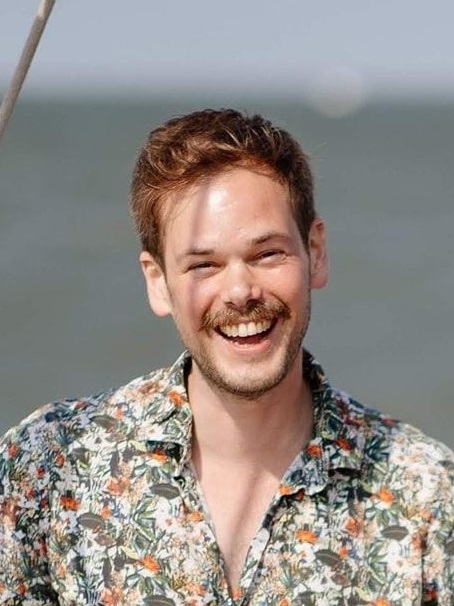
Lars de Wildt est candidat au doctorat et chargé de cours à l’Institut d’Études des Médias de la KU Leuven, avec une maîtrise en Littérature de l’Université de Leiden. Son projet principal combine des interviews et des analyses de jeux vidéo, pour découvrir comment et pourquoi les jeux, joueurs et développeurs jouent avec la religion dans une époque supposée laïque. Il a été chercheur invité à Deakin U. à Melbourne et au LUDOV (2019), où il a interviewé des développeurs de jeux de Montréal sur le travail sur Assassin’s Creed d’Ubisoft. Lars a publié avec Information, Communication & Society; le British Journal of Sociology of Education; la European Journal of Cultural Studies; Games & Culture ; et d’autres. Fait favorit: Super Mario World est le meilleur jeu jamais publié.
Ea C. Willumsen
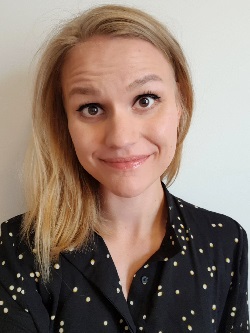
Ea C. Willumsen est étudiante au doctorat à l’université de Bergen en Norvège où elle travaille au sein du Media Aesthetics Research Group. Son projet de doctorat s’intéresse à l’exploration théorique de la relation entre les avatars et les mondes du jeu. Son passage au Ludov en 2018 a facilité sa recherche sur 100 jeux vidéo différents utilisés pour explorer les configurations de l’avatar à travers une variété de plateformes et de genres. Elle détient une maîtrise qu’elle a obtenu à l’Université IT de Copenhague en Analyse du Jeu et un baccalauréat qu’elle a obtenu à l’Université de Roskilde en Communication et Informatique.
Chercheurs associés
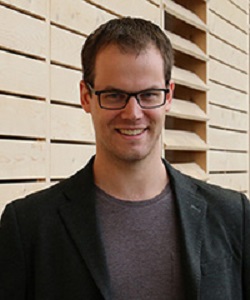
Simon Dor est professeur adjoint à l’Unité d’enseignement et de recherche en création et nouveaux médias de l’Université du Québec en Abitibi-Témiscamingue au centre de Montréal. Il s’intéresse particulièrement au jeu de stratégie, en l’abordant du point de vue de sa jouabilité, de son histoire, de son expérience compétitive ou narrative, de la cognition qu’il implique et de la représentation qu’il induit. Ses recherches et son enseignement l’ont cependant poussé à s’intéresser aussi aux sports électroniques, à l’immersion, à l’éthique et au design de jeu. Il blogue depuis de nombreuses années sur ses recherches (http://www.simondor.com) et utilise les outils de diffusion de jeux vidéo — Twitch et YouTube — pour mieux comprendre ce que ces nouveaux objets impliquent sur la culture vidéoludique et pour diffuser ses recherches.
Hugo Montembeault [Academia] [Youtube] [SoundCloud] [Tumblr]  Critique vidéoludique
Critique vidéoludique Genres vidéoludiques et communautés discursives
Genres vidéoludiques et communautés discursives
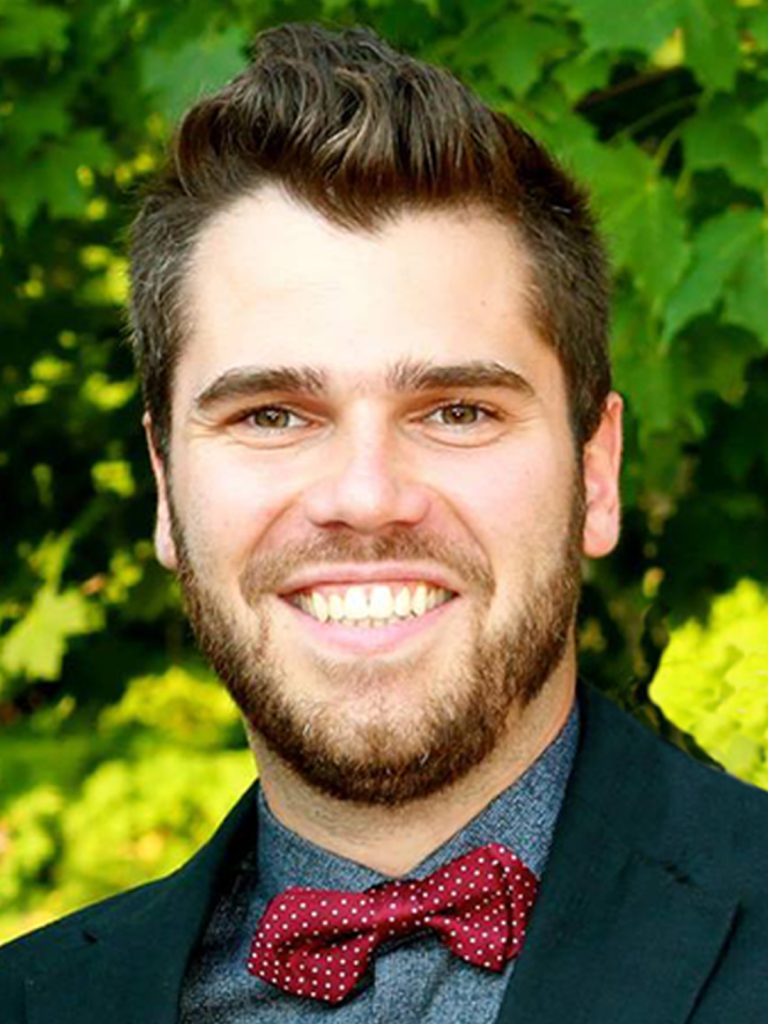
Hugo Montembeault est titulaire d’un doctorat du Département d’études cinématographiques de l’Université de Montréal où il est également chargé de cours en études du jeu vidéo. Il donne des cours sur l’esthétique du jeu, l’immersion, la culture et la méthodologie. Ses principales recherches étudient la nature transgressive des glitches du point de vue de l’archéologie des médias afin de critiquer sa participation bruyante à l’économie politique de la conception de jeux et de la culture vidéoludique. Tout au long de sa collaboration avec le « Laboratoire universitaire d’observation et de documentation des jeux vidéo » (LUDOV), il a participé à deux projets de recherche subventionnés, l’un sur les genres vidéoludiques et l’autre sur la critique de jeu. Ses autres contributions touchent à la narratologie, à l’historiographie du jeu, au discours de la presse spécialisée en jeu vidéo et à l’expérience esthétique des simulateurs de marche. Récemment, il a lancé un projet de recherche-création de deux ans en tant que stagiaire postdoctoral au TAG (Université Concordia). Par l’entremise de la création d’une expérience de jeu basée sur le glitche, il entreprend d’explorer, de bricoler et de cartographier la rhétorique procédurale des glitches du point de vue du design de jeu.
Martin Picard [Site] 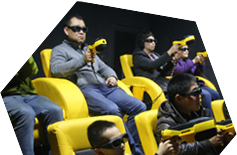 Cinéma interactif
Cinéma interactif 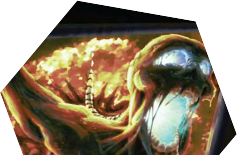 Jeu vidéo d'horreur
Jeu vidéo d'horreur
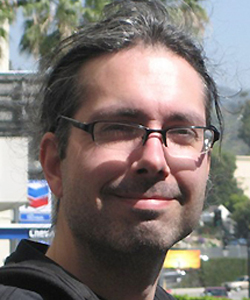
Martin Picard est professeur invité et chercheur associé au Département d’études japonaises de l’Université de Leipzig en Allemagne. Il fut titulaire en 2012-2013 d’une bourse de recherche en études japonaises de la Japan Foundation à l’Université Wako, à Tokyo. Il a également effectué un stage postdoctoral à l’Université McGill et obtenu son doctorat en littérature et cinéma au Département de littérature comparée de l’Université de Montréal. Il enseigne l’histoire et l’esthétique du jeu vidéo, le game design, et les méthodologies en animation pour le programme en Art et science de l’animation de l’École de Design à l’Université Laval. Il enseigne également le cinéma japonais et chinois, et la littérature et culture japonaises au Département d’études est-asiatiques de l’Université de Montréal. Ses recherches portent essentiellement sur l’histoire et la culture du jeu vidéo japonais, mais aussi sur les cinémas nationaux et numériques, de même que sur la culture populaire dans ses manifestations transmédiatiques et transnationales. Il est le co-fondateur et membre du comité exécutif du Symposium annuel histoire du jeu (sahj.ca) et il est également le co-fondateur et co-rédacteur en chef de la revue Kinephanos (kinephanos.ca).
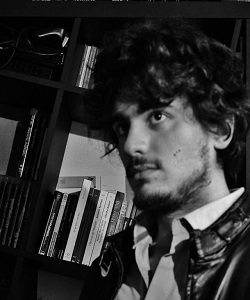
Jean-Charles Ray holds PhDs in both Cinematographic Studies (Université de Montréal) and Comparative Literature (Université Paris III – Sorbonne Nouvelle), and is a lecturer at Université de Montréal and Université du Québec en Abitibi-Témiscamingue. He is the author of Le Grimoire et le monstre – Penser le jeu vidéo par la littérature fantastique (Pix’n Love, 2024) and co-founder of the Roleplaying Research and Observation Group (GORR). His main areas of research are horror, game scriptwriting and tabletop role-playing. He is also a scriptwriter and creator of role-playing games.
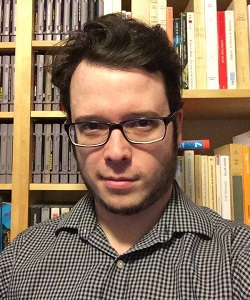
Guillaume Roux-Girard est professeur invité à l’UER en Création et nouveaux médias de l’Université du Québec en Abitibi-Témiscamingue (campus de Montréal). Ses recherches actuelles portent sur l’écoute du jeu vidéo.
Gabrielle Trépanier-Jobin Histoire internationale du jeu vidéo (SHAC)
Histoire internationale du jeu vidéo (SHAC)

Gabrielle Trépanier-Jobin est professeure en jeux vidéo à l’École des médias de l’Université du Québec à Montréal (UQAM) et codirectrice du groupe de recherche Homo Ludens. Dans le cadre de son doctorat en communication à l’UQAM et de son postdoctorat au MIT, elle s’est intéressée aux représentations des femmes dans les jeux vidéo et à leurs impacts sur l’identité de genre des joueur.se.s, de même qu’à la parodie vidéoludique et autres formes d’appropriations de ce média interactif. Ses recherches actuelles portent sur l’immersion des joueur.se.s, sur la diversité et l’inclusion dans l’industrie du jeu vidéo, de même que sur le potentiel de sensibilisation et de conscientisation des jeux féministes et écolos.


